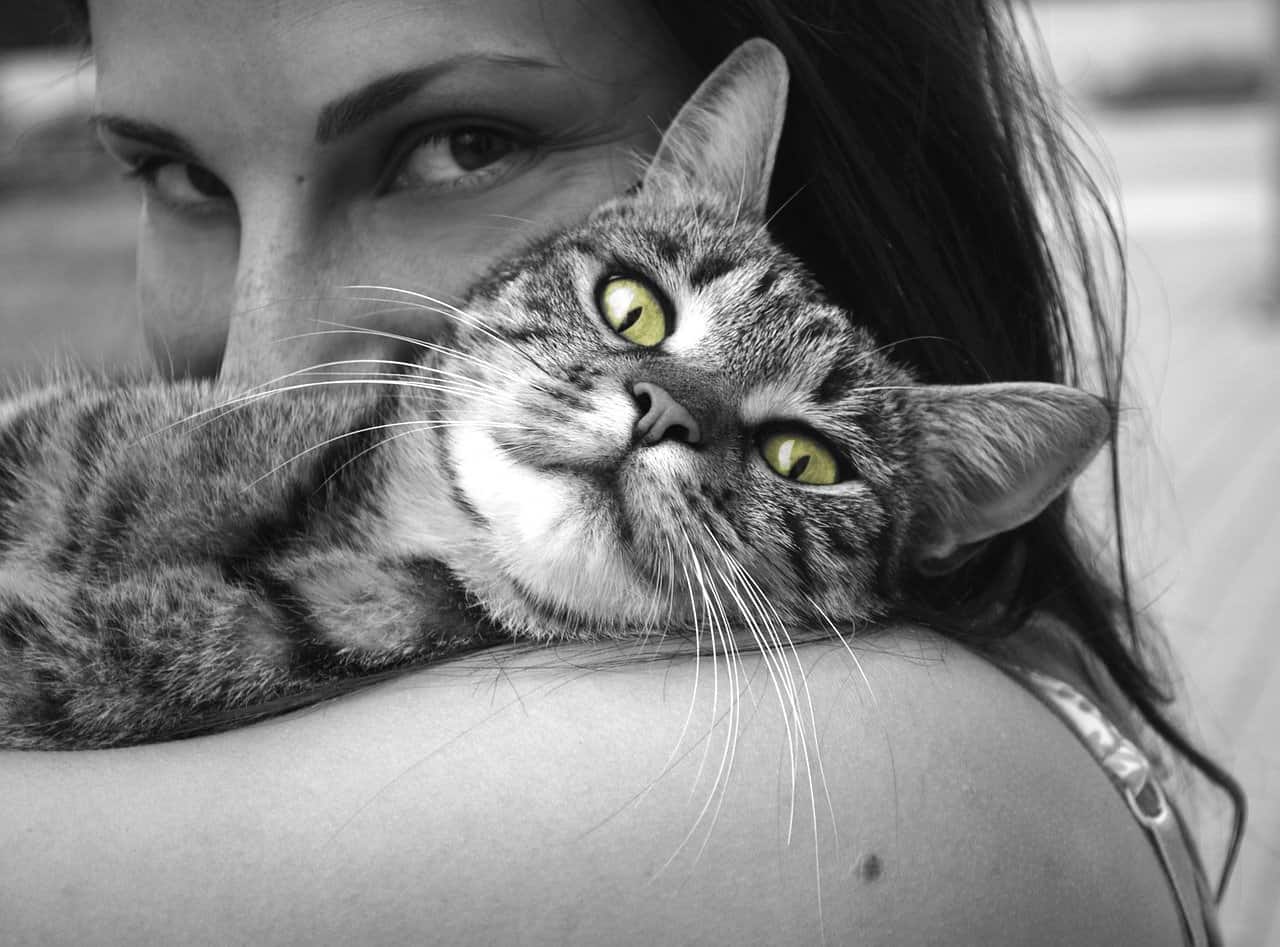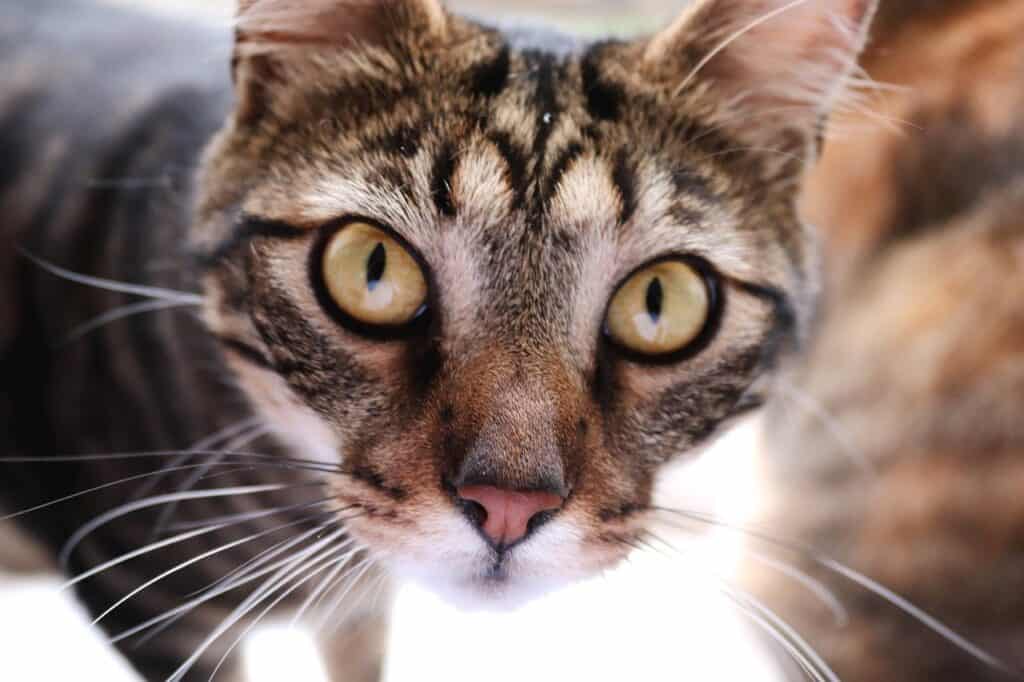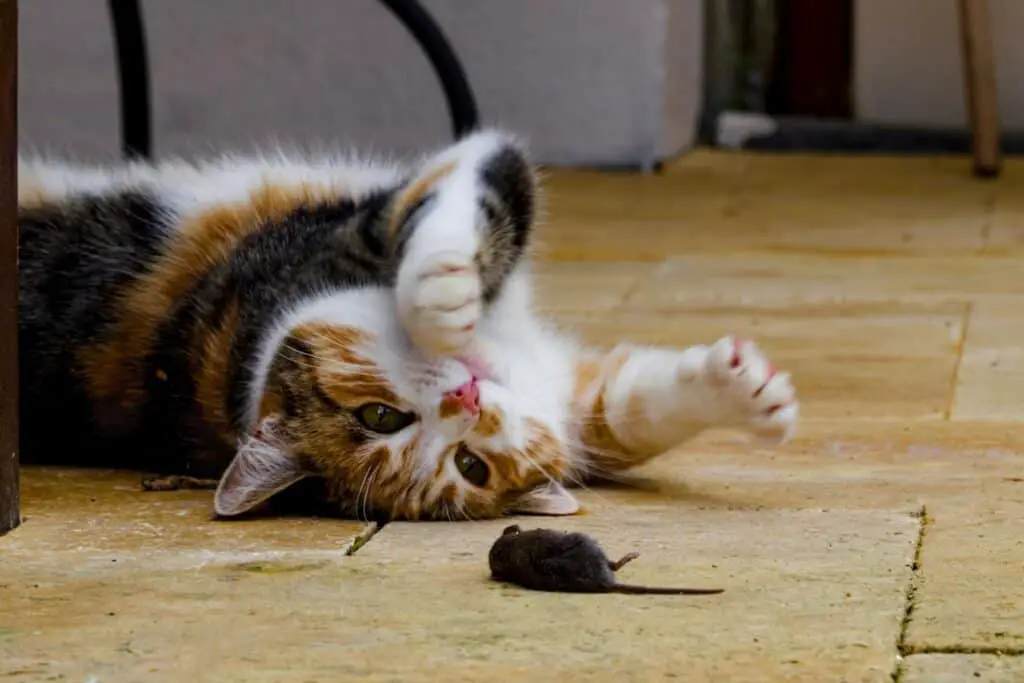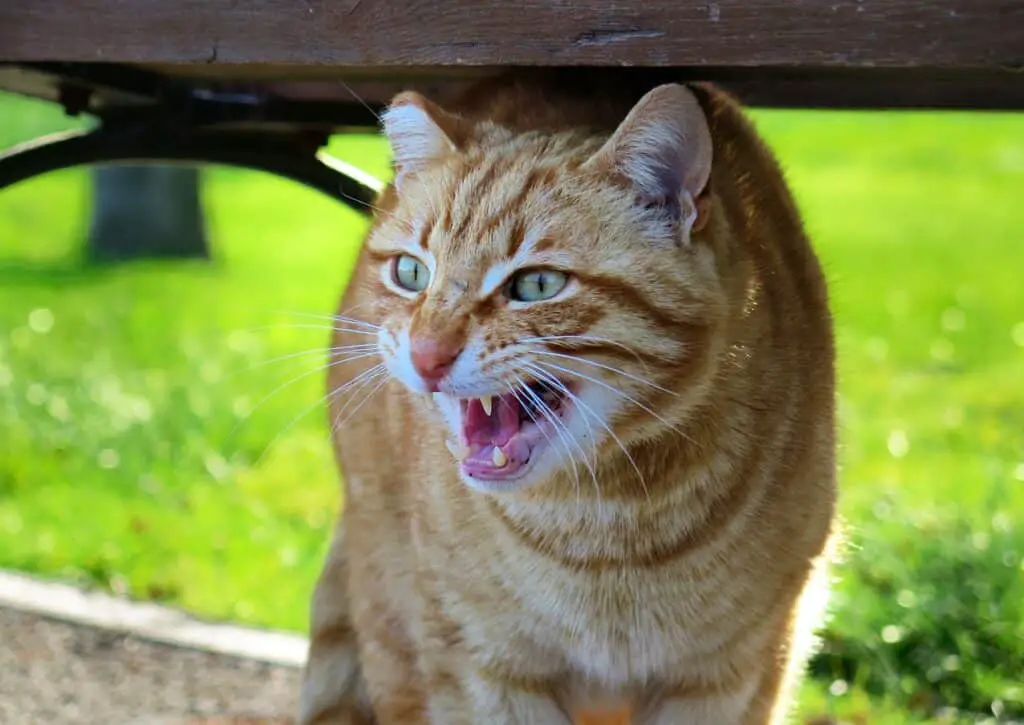Humans have cherished and adored cats for ages. Although it can be tricky to determine how exactly they feel about us, you shouldn’t be too fast to assume your cat doesn’t pay too much attention to you.
It turns out that cats may be more attentive to us than we think. Research shows that cats are very good at ‘reading people’ and possibly even understanding our emotions.
Cats can sense simple human emotions by reading facial expressions, body language, gestures, and tone of voice. They learned this over time through observation and close relationships with humans. Not all cats are equally intuitive, but they are undoubtedly more interested in us than commonly believed.
Although they are typically self-serving, cats can display various acts of kindness, devotion, and affection. A study conducted at Oakland University in Rochester scientifically proved that cats can sense simple emotions.
How do cats sense human emotions?
Depending on your habits and how long your cat has had time to observe you, they can pick up on things you do when you feel a certain way – such as curling into a ball under blankets when you are sad or singing if you are happy.
Facial Expressions
Assessing facial expressions is one of the primary methods how cats read human emotions. Whether you are smiling, frowning, or somewhere in between, your cat will pay attention and link the facial expression with potential emotions.
Body Language
Our body language tells a lot about how we feel, both to other humans as to cast. Most cats will be able to assess your state of mind by observing how you move and how you present yourself to them.
A cat who knows you well will even be able to pick up on more subtle gestures as well, like when you tap your fingers when you’re nervous, for example.
Tone of Voice
Cats have become very used to listening to us and deduce how we feel from our tone of voice.
Cats rarely communicate vocally among themselves, but they understand that it is our primary form of communication; hence they ‘meow’ at us when craving our attention.
Your cat listens to you very carefully, and she will know that something is up when you call her name in a certain way. By listening to you speak with others, your cat can deduce your state of mind by interpreting your voice.
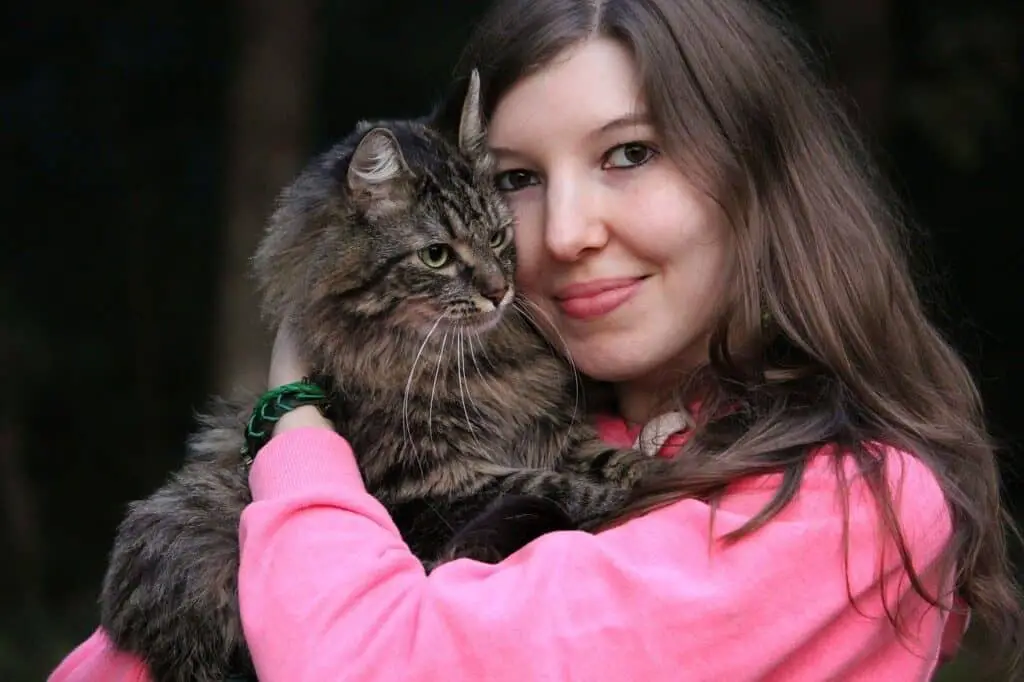
Context
Facial expressions, body language, tone of voice, and gestures are indicators that allow cats to assess our feelings.
However, cats are more intelligent than many of us think, and they’re pretty good at understanding context. The context of a situation gives them significant cues on how we feel.
For example, when you receive a phone call and express happiness afterward, your cat may assume it had something to do with whoever you spoke with on the phone.
When you were happy all day, but this changes after someone came over and you had a discussion or an argument, your cat will know that you’re unhappy because of that.
Cats observe the situation, and when they have more pieces of information to work with, it will be easier for them to deduce potential emotions, reasons, and appropriate responses.
Emotional cues
When your cat is uncertain of your emotions, they may seek additional insight by stimulating responses from you.
For example, when your cat thinks you’re sad, they will probably approach you to assess the situation by seeing how you respond to them.
When you acknowledge her presence and pet her, she’ll know that everything is okay, and while you may be sad, she can help to comfort you.
Learn from prior experiences
Cats can sense human emotions by observing signs and associating these indicators with what they witnessed in the past.
They remember prior experiences and learn from the interactions they had with us. Because cats are very sensitive, they will remember what made you sad, happy, angry, or otherwise.
The likelihood of your cat being able to sense your emotional shifts is far greater if you have a strong and loving relationship with her.
Even though it can be hard to tell, cats do pay attention to the little things. Contrary to popular belief, cats are interested in us – our activities, habits, and feelings.
Not all cats are equally intuitive
Not all cats have the same ability to sense emotions.
There are many variables to consider, such as the length of the relationship with your cat, your cat breed’s average intelligence, genetic traits, and how you display your emotions.
If you try hard to hide your emotions, don’t be surprised if your cat can’t tell what you’re feeling.
What emotions can cats sense?
Generally speaking, your cat senses your basic emotions, including happiness, sadness, anger, and fear. These emotions result in explicit facial expressions, body language, and other telling indicators that make it fairly straightforward for cats to understand your state of mind.
It also depends on how well your cat knows you. When observing a stranger, she might only pick up on very clearly displayed emotions.
On the other hand, if your cat knows you well, she will pick up on even the slightest emotions she learned throughout your relationship.
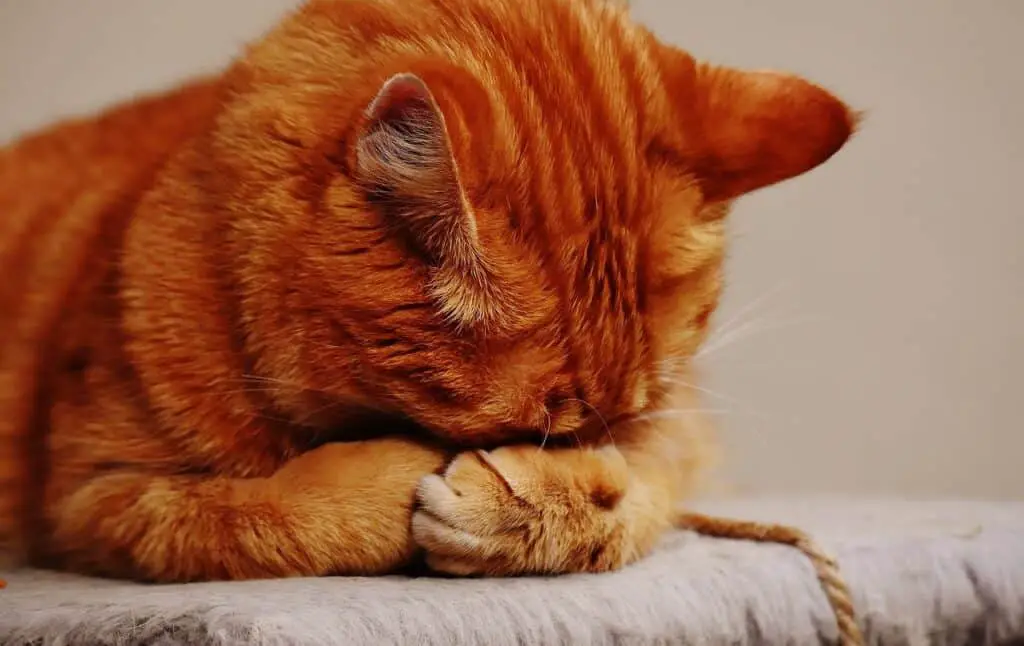
Do cats understand human crying?
Based on the abovementioned cues like facial expressions, tone of voice, body language, and context, your cat will know that crying is a negative emotion.
Although they may not understand the act of crying itself, they do know that it’s a strong emotion, and it means that you’re not feeling happy at that moment.
How do cats respond to human crying?
When you cry, your cat will either back away and leave you alone or draw near to spend time with you and console you. Both of these approaches may have your best interest at heart and are completely understandable.
Also, it would be precisely what most humans would do when confronted with the same situation. In some cases, cats may even cuddle against you or try to lick your tears away.
How do cats respond to our emotions?
While they’re infamous for their aloof and disinterested demeanor, their self-serving nature is coupled with their own forms of love and affection.
Cats are shrouded with accusations of being impartial, selfish, and insensitive for ages. But, this is not true; they just have unique and subtle ways of responding to human emotion.
Subtle responses to human emotion
Compared to other animals, such as dogs, cats display extremely subtle reactions to human emotion, making it easy for us to overlook their responses and assume they do not care.
When you feel sad, your cat may lick your face or curl up beside you, which can be perceived as typical behavior unrelated to your emotions.
It’s also common for cats to know when you may be experiencing pain and attempt to alleviate some of the pain through purring.
There have been reports of cats licking their loved one’s face while their caregiver is in labor and cases where cats have curled up and purred against painful areas to soothe loved ones to sleep.
The gift that keeps on giving
It’s very common for cats to present caregivers with various gifts to show affection, especially if loved ones are sad.
Your cat may choose to provide you with gifts such as dead rats, mice, or birds to display their love and devotion.
If your cat isn’t much of a hunter, they may even bring you little trinkets from around the home, such as hair bands, toys, or even ice blocks. All of these measures are affectionate responses on your cat’s behalf.
Social interaction with your cat

When faced with happy smiling faces, your cat is more likely to display positive behavior in return, such as purring, rubbing their bodies against loved ones, or seeking affection.
On the other hand, your cat may avoid people with frowning faces entirely or hiss at those displaying highly negative emotions.
A cat’s responses are deeply rooted in how they perceive a human emotion. On the other hand, but it does not prove that cats are empathetic.
They may assume the odds of receiving affection are higher when you are happy, less when you are sad.
Even though cats can seem aloof and self-centered, they display many telling signs that prove they care much more than humans believe.
Although humans may never wholly understand cats, the more you open up to your cat, the easier it will be for your cat to understand you.

